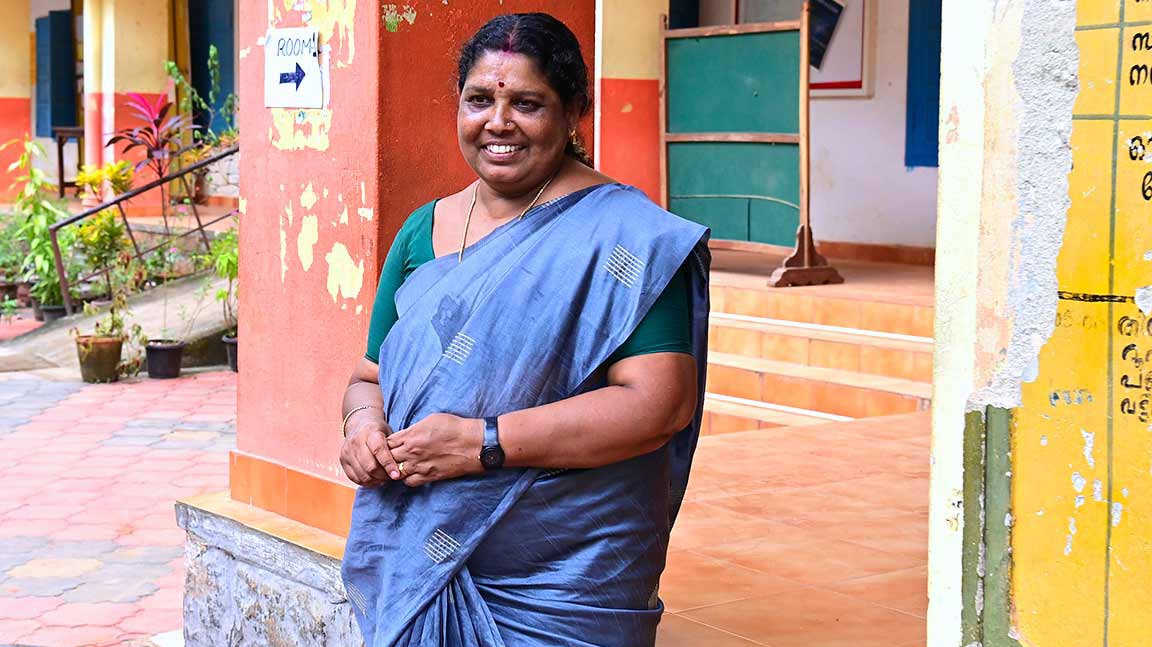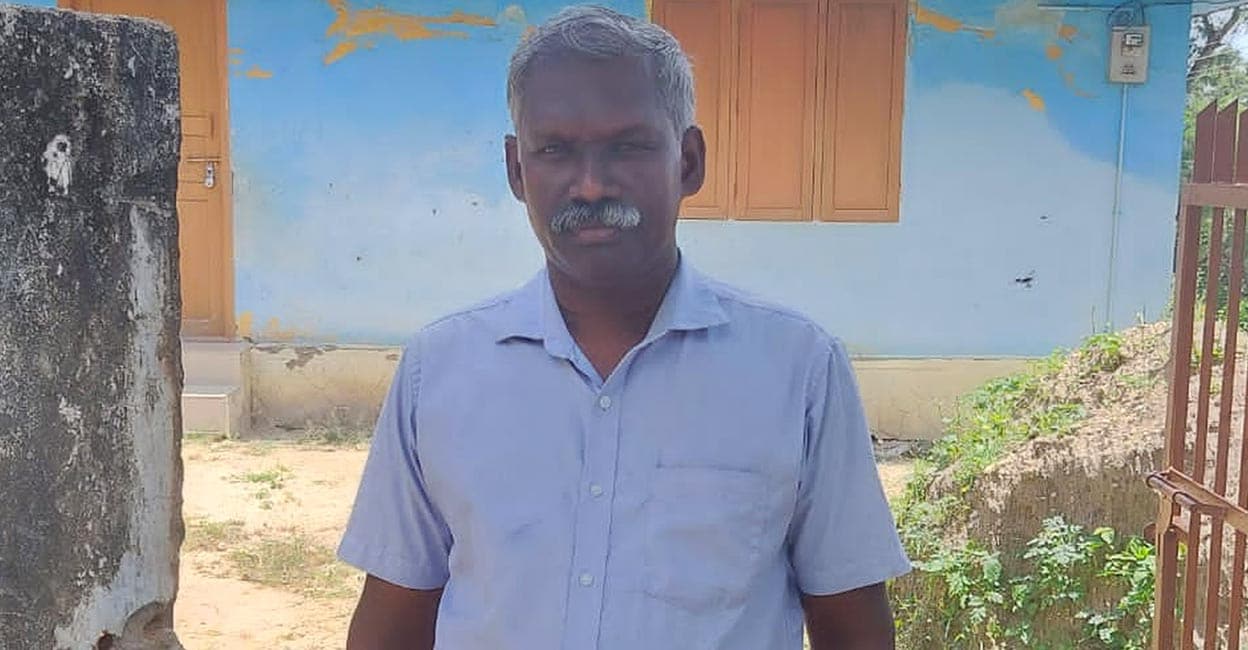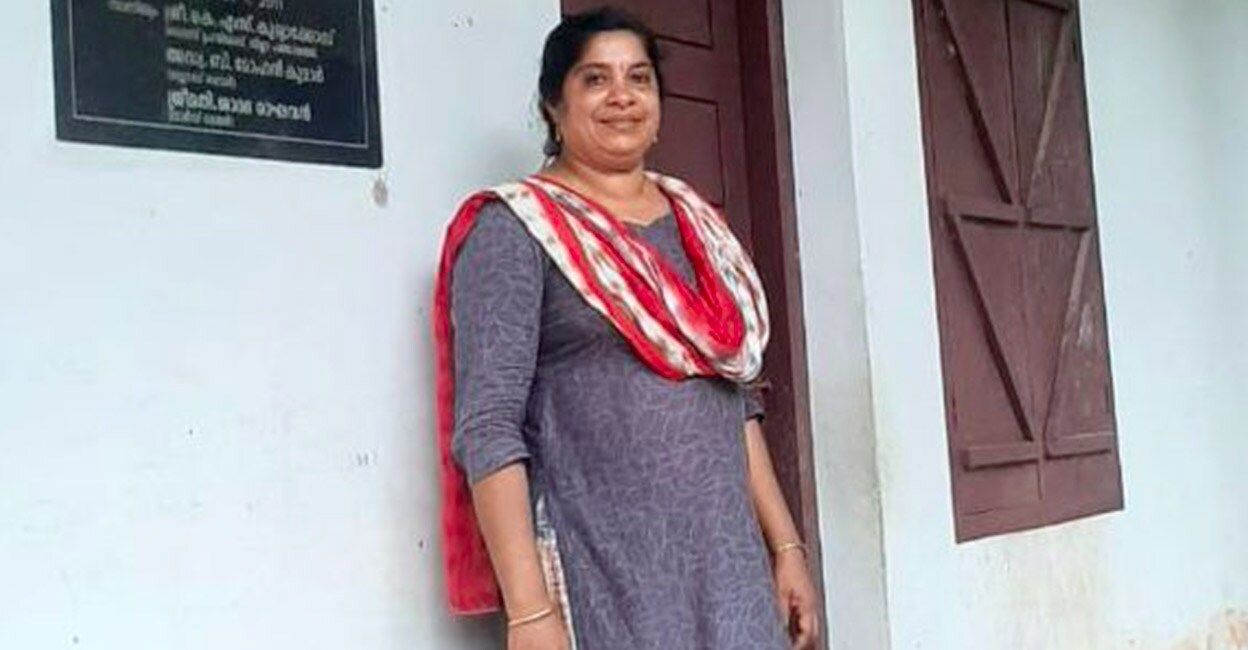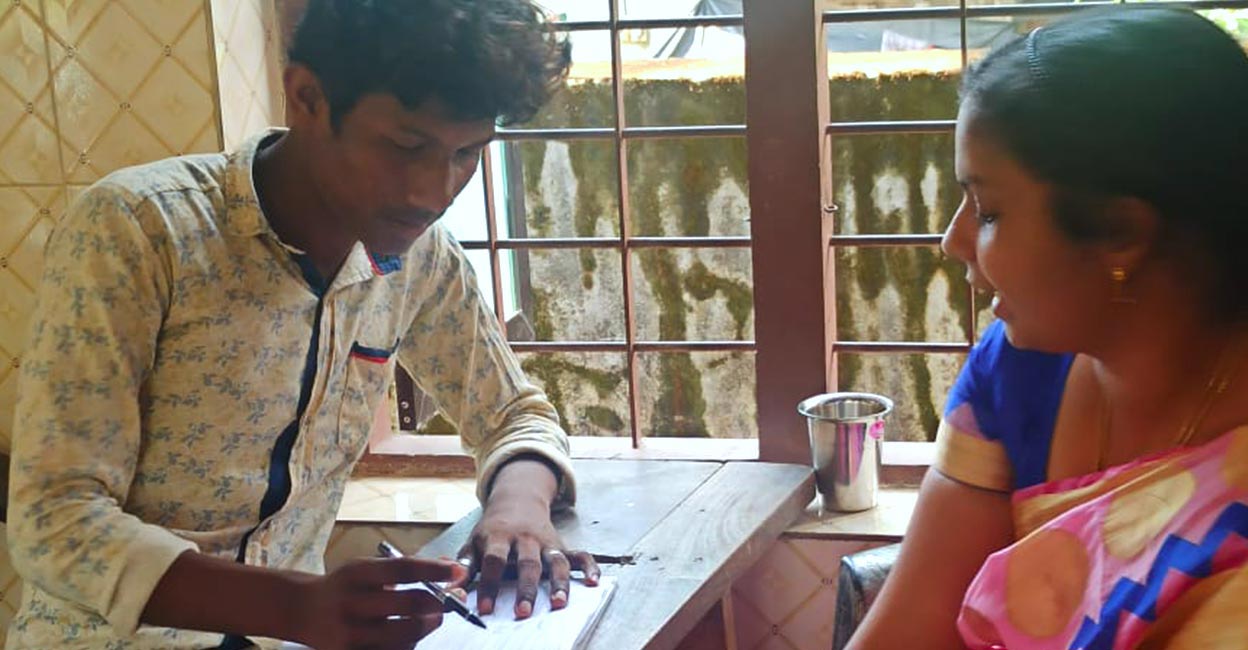Former sole teachers of alternative schools in Kerala come to terms with budding career as sweepers

Mail This Article
The instructors at single–teacher schools for more than a decade are being appointed as sweepers by the General Education Department of the Kerala Government. This move came about after most such schools in remote areas of the State closed down as the students moved to other better-equipped ones. Now, the government is trying to re-employ these teachers, who have lost their jobs, as sweepers. Even though it might look like a demotion, most of them are relieved that they have got a permanent government job. But the criticism that the teachers who strived to educate the little ones weren’t given the consideration and respect that they deserve is valid.
The teachers in the single–teacher schools in the tribal areas had to cross treacherous rivers and dangerous forest paths to reach these schools. They were part of the band of Vidya volunteers. Such was their dedication the instructors were willing to go to unusual levels to spread elementary education.
Despite the struggle and difficulties, the Vidya volunteers made sure to keep the single–teacher schools in the State running as they were determined to spread the light of knowledge among some of the most vulnerable kids.
The single–teacher schools that were started, in 1997, to promote elementary education in the tribal areas started to close down in phases as the subsequent governments provided better facilities, including residential schools for the tribal children. This year 272 schools were shut down rendering around 344 Vidya volunteers jobless, forcing some of them to turn to other fields to make their ends meet. The government has started appointing them in permanent posts in various government departments.
The candidate could choose the sweeper post, permanently or as a part-time job, as per their preference. Those who got permanent posts could work until they turn 60 years and the part-ime employees can work until 70 years.
Around 60 candidates have received appointment until now. Even though the minimum qualification to become a Vidya volunteer is class ten, there are teachers who have studied until post graduation. Besides, some of them are over 60 years old.
Here a few such ex-teachers from various parts of Kerala share their stories:

Ushakumari has no regrets
Thiruvananthapuram: KR Ushakumari, a native of Amburi, had walked for around four hours every day through the dense forest paths to reach the single teacher school in the tribal area. She had done this for over two decades, making her one of the most dedicated and selfless teachers. From 1999 to 2002, she was at a single– teacher school in the Kottoor forest area, where wild tuskers roam around. Later, she was transferred to Amburi Kunnathumala, where she served as the teacher until last academic year. For her unwavering commitment and service, she was honoured with a national award by a Hyderabad-based NGO. Now, she has been appointed as a sweeper at the PSNM Government Higher Secondary School, Peroorkada. Even though she misses teaching little children, she is happy that she got a permanent government job.
Ushakumari says that those who criticise the government for giving them sweeping jobs are pointlessly denouncing the authorities, without realising the realities.
“As the single–teacher schools were being shut down, our means of income too was jeopardised. We went on protests demanding a solution for this. The government listened to our pleas and gave us jobs. It is a big thing that all of us were given jobs without considering our age or eligibility. None of us have any complaint that we got sweeping jobs. In the single–teacher schools, not only did we teach the students but swept the floor and cooked for them too. Now, we are relieved that we got a job with better remuneration,” says 54-year-old Ushakumari.
Ushakumari has been permanently appointed as a sweeper. She has 6 more years of service left as the retirement age of permanent employees is 60 years.
As the leader of the association of teachers who had taught at single–teacher schools she demanded that the service of those who are above 50 years should be extended, by at least 10 years, so that they could retire with a decent pension.
Usha’s husband is a loading worker and they have two children.

No more forest trek to the workplace for P Radhakrishnan, but....
Malappuram: For the students at the single– teacher school in the tribal area, P Radhakrishnan was their beloved instructor who walked for over 10 kilometres through the dense forests, without bothering the wild tuskers and Maoist threat, to teach them. He had been an instructor here for around 13 years before the school was shut down.
Radhakrishnan, meanwhile, joined Oravampuram Girls Upper Primary School as a part-time sweeper. A native of Karulayi, Radhakrishnan had joined the alternative school for the Kattunaikar tribal group in the Mundakadavu Colony, in 2008. He had stared at death, many a times, in the dangerous forest paths where he spotted wild tuskers.
Radhakrishnan says that there had been days when he had hidden behind trees or bushes for hours, waiting for the elephants to retrieve. It was particularly hard during the heavy monsoon when the mud beneath the feet would slip away. The forest area around the Mundakadavu Colony is quite precarious with wild animals, extreme nature and Maoist presence too.
In the initial days, there were only eight students at the Mundakadavu alternative school. However, the number of students began going up as he went to every house in the colony to spread awareness about the need for education. He recalls that there had been academic years when there were up to 25 students in the school.
Radhakrishnan even learned the tribal language of the Kattunaikar to make communication easier. The tribal families in the Mudakadavu Colony moved to other places as their settlement was devastated in the 2019 floods. The alternative school too was partially destroyed. More than 50 families migrated to the Chembumkolli forest area, around 2 km away. Here, the tribal people arranged temporary classrooms and invited Radhakrishnan to teach. He had served there until last year.
Radhakrishnan is happy that the students of the non-traditional schools are moved to regular schools as they will be taught by teachers who are highly qualified. However, he cautions against drop-outs. In the forest, the schools functioned close to their homes. But, now, they have to go schools that are far away. He says that tribal students are reluctant to leave their settlements.
It was last Saturday that Radhakrishnan had joined the school as part-time sweeper. This school is over 30 km away from his house. Even though he has to work only until noon, he cannot find another job in the afternoon as it takes lots of time to travel. Besides, the salary of a part-time sweeper is meagre.
Radhakrishnan says that many former alternative school teachers in the district got appointment in schools that are far away from their homes.

Ramakrishnan: Conductor-turned-teacher-turned-sweeper
Palakkad: VM Ramakrishnan had quit his job as a bus conductor in the Kerala State Road Transport Corporation as he was worried whether the children in his tribal settlement would lose their chance to learn. After 24 years of service as alternative school teacher, he will now work as a sweeper at a regular school.
Ramakrishnan had been a teacher at the single–teacher school at the Vellamkulam tribal settlement in Attapadi. He is also a native of the Varangapadi tribal settlement in Attapadi. In 2007, he got a government job as conductor in the KSRTC. His life that was centred around the children in the settlement suddenly took a different turn. Even though he was happy that he got a well-paying job, he was upset about the plight of the children in the settlement. He couldn’t continue in the job for even a month and didn’t hesitate to quit the new job, to spend his life with the tribal children. At the school, he worked not just as the instructor but also as the head master, cook and sweeper.
In the tribal areas in Attapadi, there are 18 teachers working in 17 non-traditional schools in various settlements. Now, only the school in the distant settlement of Shingampara has been retained. Except the lone teacher here, all others have joined various regular schools as part-time or permanent sweepers. When the teachers were re-employed, the cooks at most schools have become jobless. The people of the locality were appointed as cooks at these schools. They were paid a daily wage of Rs 600.

Shanty leaves behind 25 years of teaching
Kasaragod: EM Shanty, the teacher at the single–teacher school in Parakadavu, had to travel on a bus for hours before walking for over 2.5 km to reach the school. She had been doing this for two-and-a-half decades before the school was shut down.
As part of the re-employment drive, Shanty has been appointed as sweeper at Balanthod government higher secondary school.
She had spent a major part of her life, imparting education to the children of the high ranges. The Parakadavu single–teacher school is at a remote place where vehicle services weren’t available in the early days. From Panathur, she would begin her daily hike of 2.5 km. On most days, she came home late.
The distance to the school increased after she moved to her husband’s house after marriage. Her husband Shibu’s house is at Elerithattu. From 2007 onwards, Shanty had been travelling for 3 hours in bus, daily, to reach the valley. She says that jeep services to the school began in 2015. The people of Parakadavu always sought the help of their beloved Shanty teacher for important things.
Shanty, meanwhile, is sad to bid adieu to the school where she had taught hundreds of students.

Jaini Biju relieved to get a permanent government job
Kozhikode: Jaini Biju who was the teacher at the single–teacher school in Muthappanpuzha tribal settlement is now a sweeper at the government school in Karunvanpoyil. Meanwhile, she is relieved that she had secured a permanent government job.
Jaini’s job at the school in the tribal settlement was the only means of income for her family. Her husband Biju is a farmer. However, he was forced to work as a daily labourer after farming no longer became lucrative in the mountain ranges.
Jaini, who studied until pre-degree got the job at the school in 2006. She recalls that only a handful of students had studied at the school then. It was quite difficult treading the mountain paths to reach the main road. But, now, there are proper roads leading to the remote areas. Meanwhile, the students could continue their education at the regular schools by staying in the hostels for Scheduled Caste categories. The number of students attending the single–teacher school dropped drastically before it was shut down forever on 31 May.
On 1 June, Jaini joined the Karuvanpoyil government school as a full-time menial (FTM) staff. Even when she is relieved that she got a permanent government job, she is worried whether the shutting down of schools would affect the education of children in the tribal settlements.
Jaini would at least get 15 years of service in her new job. She says that she had to constantly visit the offices for the honorarium when she was an instructor at the single–teacher school. Now, she is happy that she would at least get salary regularly on time.
Jaini has two kids who are students.
Among the 15 single–teacher schools in the district, 11 have been closed down.

